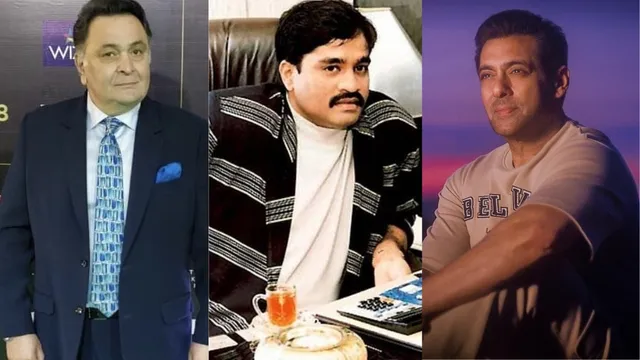- By Sidhi Agarwall
- Sun, 22 Jun 2025 06:47 PM (IST)
- Source:JND
Gangster Dawood Ibrahim’s lesser known sibling, Noora Kaskar lead a fascinating life that bridged the realms of organised crime and film music. Noora was the lysricist behind popular songs such as Choom Loon Honth Tere Dil Ki Yahi Khwahish Hai, sung by Kumar Sanu and Alka Yagnik in the Rishi Kapoor-starrer Shreemaan Aashique. He also penned Tumse Jo Dekhte Hi by SP Balasubrahmanyam and Lata Mangeshkar for Patthar Ke Phool movie. The film featured Salman Khan and Raveena Tandon in key roles.
While Dawood Ibrahim's shadow often dominates, Noora's unique involvement in both worlds makes him a particularly intriguing figure among his siblings. According to S Hussain Zaidi’s video on his YouTube channel, “Noora was a shayarmizaaj aadmi… For Dawood, it was family first. If he ever had any differences with Iqbal or Noora, he wouldn’t let anybody know of it. The ‘tapori’ type songs in films, he’d write those. He could do anything for his brothers. Everybody else came second."
ALSO READ: Salman Khan And Chitrangda Singh Join Hands For Upcoming Movie Based On Galwan Valley Conflict
More About Noora Kaskar
Noora, born into the notorious Kaskar family, was a key figure in Mumbai’s underworld during the 1980s and 1990s. He played an instrumental role in the notorious ‘hafta vasooli’ extortion rackets, allegedly overseeing collections from Bollywood figures under Dawood’s direction. Beyond his criminal activities, Noora possessed a creative side. IMDb trivia corroborates his contribution to the 1990 movie Shreeman Aashique. According to a report in The Indian Express, lyricist Shyam Keswani revealed that Noora authored a tune for the movie that celebrated Mumbai’s iconic roads as part of its narrative.
ALSO READ: Salman Khan Reveals Battling With Brain Aneurysm, AV Malformation: 'Uske Bawajood Kam Kar Rahe Hai'
Meanwhile, Noora, who died in Karachi in 2009, led a life of stark contradictions. He was a notorious gangster, but also exhibited a poetic persona. Authorities noted that his literary skills were remarkable , and together with his involvement in organised crime provided an enigmatic judgment of a man who 'wished to be a writer' while he ruled his region of the underworld. His story evokes the recognised lore of Bollywood, where the mafia's influence over Mumbai's film industry has been established.

